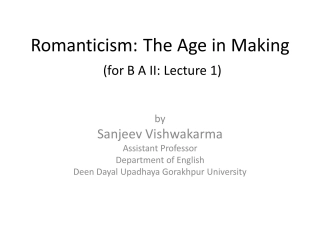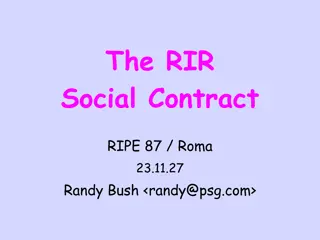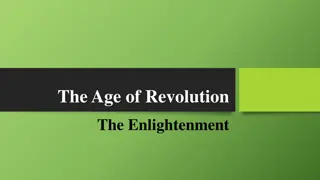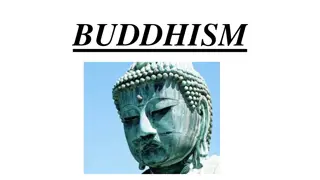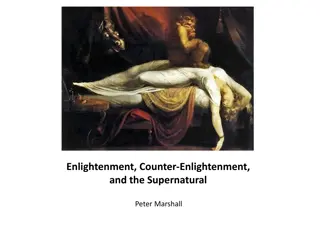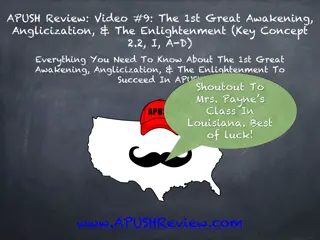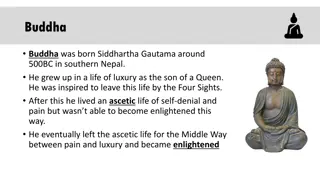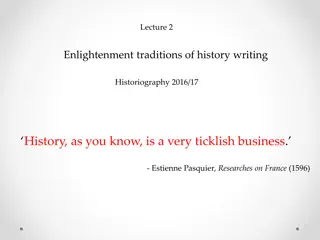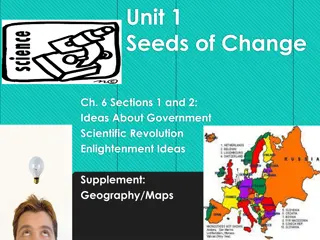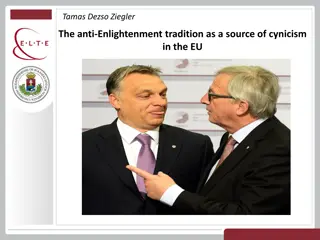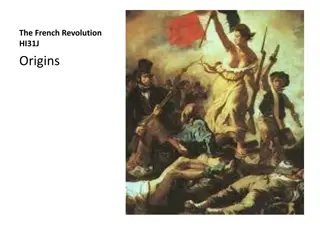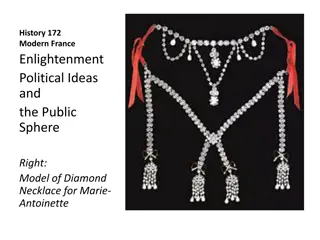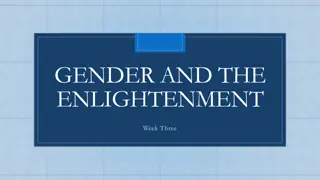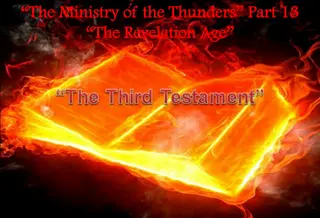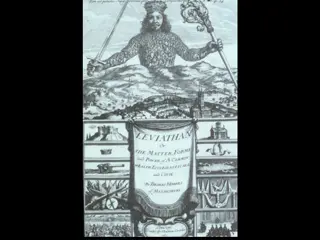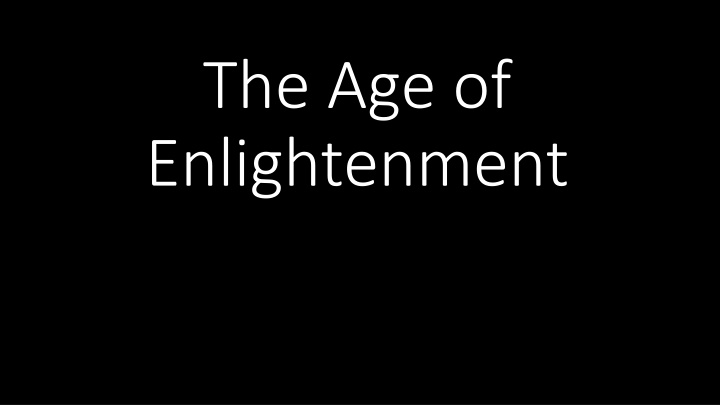
Enlightenment Key Ideas and Impact on Society
Explore the key ideas of the Enlightenment period such as rationalism, scientific inquiry, progress, and the challenges to traditional values. Learn about influential figures like Voltaire, Rousseau, and Adam Smith who reshaped political, economic, and social thought during this transformative era.
Download Presentation

Please find below an Image/Link to download the presentation.
The content on the website is provided AS IS for your information and personal use only. It may not be sold, licensed, or shared on other websites without obtaining consent from the author. If you encounter any issues during the download, it is possible that the publisher has removed the file from their server.
You are allowed to download the files provided on this website for personal or commercial use, subject to the condition that they are used lawfully. All files are the property of their respective owners.
The content on the website is provided AS IS for your information and personal use only. It may not be sold, licensed, or shared on other websites without obtaining consent from the author.
E N D
Presentation Transcript
The Age of Enlightenment
Enlightenment: Key Ideas Rationalism: All truths must be arrived at through logical, critical thinking, and none should be accepted on faith or authority alone. Science: Scientific methods could be used to examine the human world as well as the natural world to discover the laws of human society as they had discovered the laws of the physical world. Progress: Humans could use scientific research to find ways to improve life and advance humanity. The golden age was not behind us in classical antiquity or the Garden of Eden but ahead of us.
Evidence philosophes Voltaire Alexander Pope Encyclopedia Diderot D Alembert deism John Toland David Hume Edward Gibbon Baron d Holbach Immanuel Kant Spinoza Mendelsohn Cesare Beccaria physiocrats Fran ois Quesnay Adam Smith laissez-faire Montesquieu Rousseau Mary Wollstonecraft Frederick II, the Great Joseph II Catherine the Great
Rational and empirical thought challenged traditional Rational and empirical thought challenged traditional values and ideas. values and ideas. Intellectuals such as Voltaire and Diderot began to apply the principals of the Scientific Revolution to society and human institutions. Cesare Beccaria s On Crime and Punishment Despite the principles of equality espoused by the Enlightenment, intellectuals, such as Rousseau, offered new arguments for the exclusion of woman from political life, which did not go unchallenged. Mary Wollstonecraft Olympe de Gourges Marqueis de Condorcet
New political and economic theories challenged New political and economic theories challenged absolutism and mercantilism. absolutism and mercantilism. Political theories, such as John Locke s, conceived of society as composed of individuals driven by self-interest and argued that the state originated in the consent of the governed rather than in divine right or tradition. Rousseau s The Social Contract Montesquieu s The Spirit of the Laws Mercantilism theory and practice were challenged by new economic ideas, such as Adam Smith s, espousing free trade and a free market Physiocrats Francois Quesnay Anne Robert Jacques Turgot
During the Enlightenment, the rational analysis of During the Enlightenment, the rational analysis of religious practices led to natural religion and the demand religious practices led to natural religion and the demand for religious toleration. for religious toleration. Intellectuals, including Voltaire and Diderot developed new philosophies of deism, skepticism , and atheism. David Hume Baron d Holbach Religion was viewed increasingly as a matter of private rather than public concern. By 1800, most governments had extended toleration to Christian minorities and , in some states, civil equality to Jews.
New public venues and print media popularized New public venues and print media popularized Enlightenment ideas. Enlightenment ideas. A variety of institutions such as salons, explored and disseminated Enlightenment culture Coffeehouses Academies Libraries Masonic lodges Despite censorship, increasingly numerous and varied printed materials served a growing literate public and led to the development of public opinion. Newspapers Periodicals Books Pamphlets The Encylopedia
The arts moved from the celebration of religious themes The arts moved from the celebration of religious themes and royal power to an emphasis on private life and the and royal power to an emphasis on private life and the public good. public good. Until about 1750, Baroque art and music promoted religious feeling and was employed by monarchs to glorify state power. Diego Velasquez Gian Bernini George Frideric Handel Johan Sebastian Bach Artistic movements and literature also reflected the outlook and values of commercial and bourgeois society as well as new Enlightenment ideals of political power and citizenship. Rembrandt Neoclassicism Daniel Defoe Johann Wolfgang von Goethe

